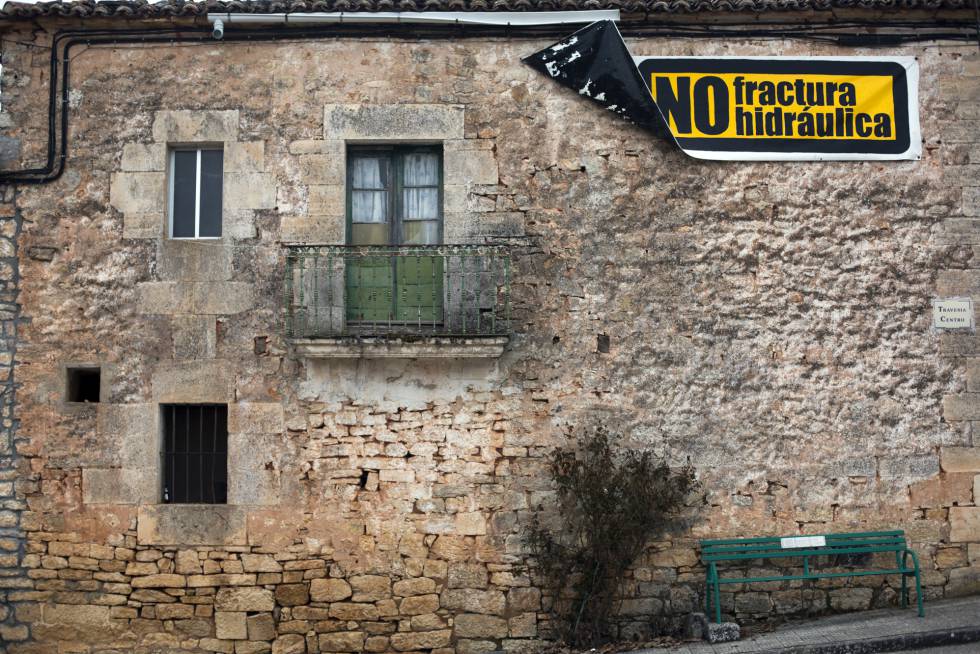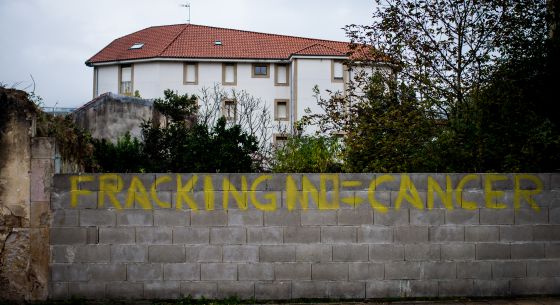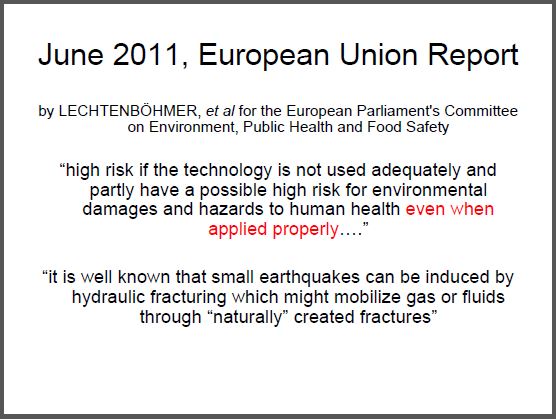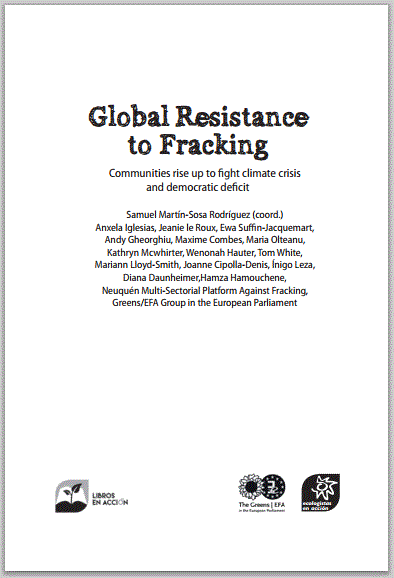Spain passes climate bill banning new oil, gas exploration by Robert Perkins, S&P Global Platts, May 14, 2021
HIGHLIGHTS
Deadline for existing upstream blocks set for 2042
Follows similar moves by Denmark, France, Ireland
New climate law also bans fracking
London — Spain has become the latest European country to set a date for a ban on oil and gas exploration as part of the country’s climate change and energy transition bill.
Spain’s Congress on May 13 approved the bill which outlines its decarbonization objectives through to 2050 and approved a Eur1.7 billion ($2.06 billion) investment plan to promote own-consumption and behind-the-meter battery systems, among others. The bill also aims to boost the share of renewable energy in its power generation mix to 74% by 2030.
The bill had already passed Spain’s lower house in early April after almost a year of debate.
Under the bill, Spain will no longer issue new concessions for exploring or producing fossil fuels and existing concessions cannot be extended beyond Dec. 31, 2042.
The bill also bans fracking and requires all public institutions to divest any holdings in companies involved in the production, refining, and processing of fossil fuels.
Spain’s main remaining producing assets are in the Mediterranean Sea, some 45 km off the coast of Tarragona.
Spain’s Repsol operates the Lubina and Montanazo oil fields in the area which have a net production of 1,320 b/d of oil equivalent, according to the company.
The fields are produced from the aging Casablanca field production platform which saw production peak in the mid-1980s.
Spain’s move to ban new exploration awards follows a December move by Denmark to ban new exploration and end its oil and gas production from the North Sea by 2050 as part of the country’s efforts to become “climate neutral” in the coming decades.
France in 2017 agreed to phase out fossil fuel production by 2040, and halt the granting of new exploration permits. Ireland banned new onshore and offshore oil and gas exploration in February 2018.
![]() Deadline for Senate approval is May 4th, 2021, then goes back to Congress for final approval.
Deadline for Senate approval is May 4th, 2021, then goes back to Congress for final approval.![]()
Spain Approves Its First Climate Change Law: At Least 74% Renewable Electricity Production By 2030 by The Corner, 19th April 2021
For the first time, Spain has approved a bill to combat climate change and its effects. This document will go to the Senate for approval, so that we would have the first Law on Climate Change and Energy Transition in our country.
On April 8th, Parliament approved the first Climate Change Law in Spain, which aims to comply with the goals set out in the Paris Agreement. The Climate Change and Energy Transition Bill will now go to the Senate for reviewing and processing to be definitively approved, unless an unexpected setback arises.
Five years after the signing of the Paris Agreement, which establishes different measures for the reduction of greenhouse gas (GHG) emissions to mitigate the effect of climate change, Spain is launching its first climate law to comply with the international commitments agreed in the fight against climate change.
The main objective is to reach so-called “climate neutrality” by 2050, i.e. to achieve full decarbonisation.
The Minister for Ecological Transition, Teresa Ribera, stated on the day the first Spanish climate change law was passed that “today is an important day. An enormously ambitious climate law has been passed as a result of joint work on which there is still, I am sure, room for further improvement. The trajectory is not linear, but one which must increase progressively as we reach cruising speed in the time to come, because we are late on climate change.”
Main objectives of the Climate Change Law
By 2030, it has been established in law to reduce greenhouse gas emissions by at least 23% compared to 1990 emissions. There will be several upward revisions of the norm, the first of which will be in 2023, then a more ambitious target may be set if appropriate.
Whatsmore, the aim is also to achieve a penetration of renewable energy in final energy consumption of at least 42% (compared to around 20% at present) and energy efficiency of 39.5%; and to achieve renewable electricity production of at least 74% (compared to 40% at present).
Most important measures of the Climate Change Act
Electric mobility
The main objective of the climate law in this scenario is to achieve by 2050 “a fleet of passenger cars and light commercial vehicles without direct CO2 emissions”. In addition, the goal is to end the sale of polluting cars and commercial vehicles by 2040.
All cities with more than 50,000 inhabitants will have to adopt sustainable mobility plans that include low-emission zones similar to those in Madrid and Barcelona. Municipalities with more than 20,000 inhabitants will also have to approve low-emission zones if their air quality is not adequate.
Obligations are established for charging points at petrol stations and in buildings to facilitate the installation of these points. All non-residential buildings with more than 20 parking spaces will have to be equipped with charging infrastructure by 2023.
The climate law also sets targets for integrating alternative fuels in transport, one of the sectors with the greatest difficulties in terms of decarbonisation.
Through this new law, the government will promote the financing of public transport and set targets for railways over distances of more than 300 kilometres.
Ban on fracking
Fracking is a technique that enables or increases the extraction of gas and oil from the subsoil. The new Climate Change Law prohibits this practice and establishes that no new hydrocarbon extraction projects will be allowed to open, no new concessions will be granted and the extension of these fields beyond 2042 will not be approved.
The main objective of this measure is to achieve the aforementioned goal of 100% renewable electricity generation by 2050. To this end, reversible hydroelectric plants, urban supply systems and the installation of photovoltaic panels for self-consumption will be promoted. In addition, the creation of a Horizontal Property Law is planned to facilitate self-consumption in homeowners’ associations.
Renewable energies and adaptation
Every five years, the government will have to draw up a national plan for adaptation to climate change, which will have to identify the different risks and negative impacts on natural systems, territories, populations and socio-economic sectors.
The government will have to present a “specific strategy for the conservation and restoration of ecosystems and species that are particularly sensitive to the effects of climate change.”
Finally, the Law obliges educational centres to include sustainability and the fight against climate change in their teaching.
In addition, a committee of scientific experts on climate and energy transition is to be set up as the body responsible for evaluating and making recommendations on both issues.
Spain is in the process of approving a full set of new regulations to achieve the goal of climate-neutrality by 2050 by Herbert Smith Freehills LLP, European Union, Spain September 4 2020, Lexology
Spain´s Government is fully committed to take the lead in decarbonization of economy and is in the path of approving a full set of regulations aiming for net-zero emissions that should be carefully taken into account by companies and investors.
In this regard, last 21rst January 2020, in line with EU declaration, the Spanish Government declared the climate and environmental emergency, committing to adopt a comprehensive set of measures and policies to address the challenge with a view to climate neutrality by 2050. In particular, outlined 30 priority measures such as the approval of a Climate Change and Energy transition bill, the preparation of a sustainable finance action plan, a green bond issuance programme, approving a circular economy strategy, the sustainable tourism strategy, approving a law on sustainable mobility, and many others, in line with the Paris Climate Agreement.
Following the climate and environmental energy declaration, on 19 May 2020, the Council of Ministers approved the Bill on Climate Change and the Energy Transition (the “Climate Change Bill”), which was sent to Spanish Parliament for processing and final approval -which is currently ongoing-. The Climate Change Bill, reinforces the country‘s commitment to the Paris Climate Agreement and promotes green growth as a pillar of its COVID-19 recovery plans. It raises climate targets, boosts e-mobility, and makes cities greener.
In line with EU ambitions, Spain wants to cut carbon emissions to net zero by 2050. To reach this goal, the Government has established ambitious interim targets in accordance with the 2030 EU objectives. The new Climate Change bill includes strong measures for sustainable transport, phasing out of diesel vehicles by 2050 and ensuring that all new vehicles are zero carbon by 2040. It seeks to boost e-mobility and will oblige all petrol stations to install charging ports. All Spanish cities with more than 50,000 inhabitants will have to establish low-emission areas by 2023. They will need to incorporate urban mobility legislation that promotes the EV charging points, the use of public transport and bicycles.
Fracking is forbidden.
And from 2023 financial institutions must propose strategies to align their portfolios with the Paris Agreement.
Additionally, the Climate Bill establishes the content of the non-financial reporting obligations of listed companies including the information regarding the level of exposure of climate and carbon risks and the strategies and objectives for its mitigation.
Finally, the Climate Bill also focuses on ensuring that the energy transition succeeds “without leaving anyone behind.” In this regard, together with other EU Member States, Spain has called on the European Commission (EC) to use the European Green Deal as a major lever for the economic recovery of Europe after the crisis caused by COVID-19.
More recently, last 8 June 2020, the Council of Ministers gave green light to the Spanish strategy on Circular Economy, and the Government approved Royal Decree-law 23/2020, of 23 June, which approves measures in relation to energy and other areas to stimulate economic recovery) contains measures that affect a number of different sectors, but it primarily contains provisions for the electricity sector, with a particular focus on the regulations governing renewable energy generation facilities.
In addition, the Long term Decarbonization Strategy in currently under consultation process and the Government has announced that a Sustainable Mobility Law shall be submitted for its approval at the end of the year.
Climate change activists are commencing litigation and major investors are carefully reviewing their portfolios/ potential investments verifying how the industries address decarbonisation and related climate change risks. It’s time to clearly understand the new regulatory environment, the specific obligations of the companies and the recommendations included in good governance codes.

Refer also to:
2017: Bravo! Brava! Spain! Frack bubble bursts, Five companies give up in face of opposition

Sign in the village of Quintanilla-Sobresierra (Burgos). Gorka Lejarcegi
2015: [Libro] Resistencia global al fracking 30 de abril, por Ecologistas en Acción por Ecologistas en Acción
PDF (801.2 KB) Resistencia global al fracking
2015: Book: Global Resistance to fracking by Ecologistas en Acción
Mother courage ………………………………………………………………………………… 25
Diana Daunheimer and family (Alberta, Canada)
Read more about Diana in Andrew Nikiforuk’s Slick Water

2014: Spain: Is Cantabria fracking ban unconstitutional?
2014: Spain to challenge Cantabria’s fracking ban in court
“By any responsible account,” Chief Justice Castille wrote, “the exploitation of the Marcellus Shale Formation will produce a detrimental effect on the environment, on the people, their children, and the future generations, and potentially on the public purse, perhaps rivaling the environmental effects of coal extraction.”
Mayor Saiz explains that the region’s food supply is even more at risk because 80 percent of the economy relies on cattle ranching. “If the water is contaminated, we will suffer irreversible damage; the wells, the noise from the trucks will shatter our peaceful environment,” the mayor said.
“If the trucks come, I will be the first one to throw myself on the highway to stop them,” said Mayor Saiz

2012: AEA: Support to the identification of potential risks for the environment and human health arising from hydrocarbons operations involving hydraulic fracturing in Europe
A proportion (25% to 100%) of the water used in hydraulic fracturing is not recovered, and consequently this water is lost permanently to re-use, which differs from some other water uses in which water can be recovered and processed for re-use.
2011: European Union report says ban fracking
“To use fresh water for hydraulic fracturing — pour toxins into that water…put it into permanent storage — taking it out of the water’s cycle. How’s that sustainable?”

Slide from Ernst presentations


